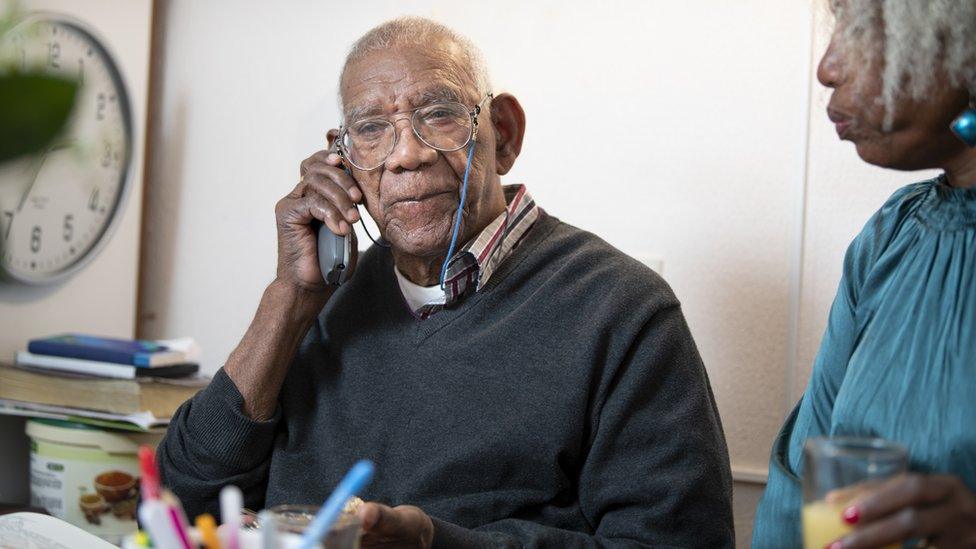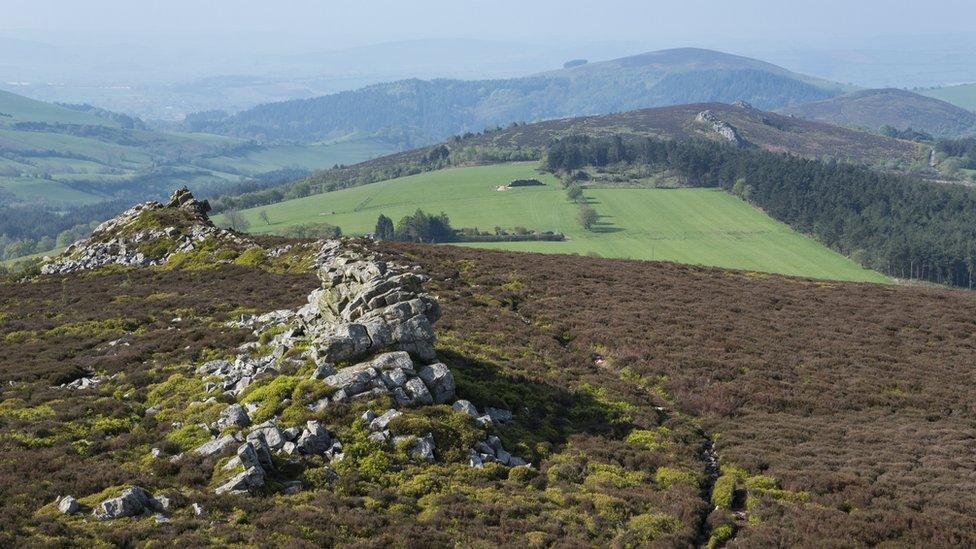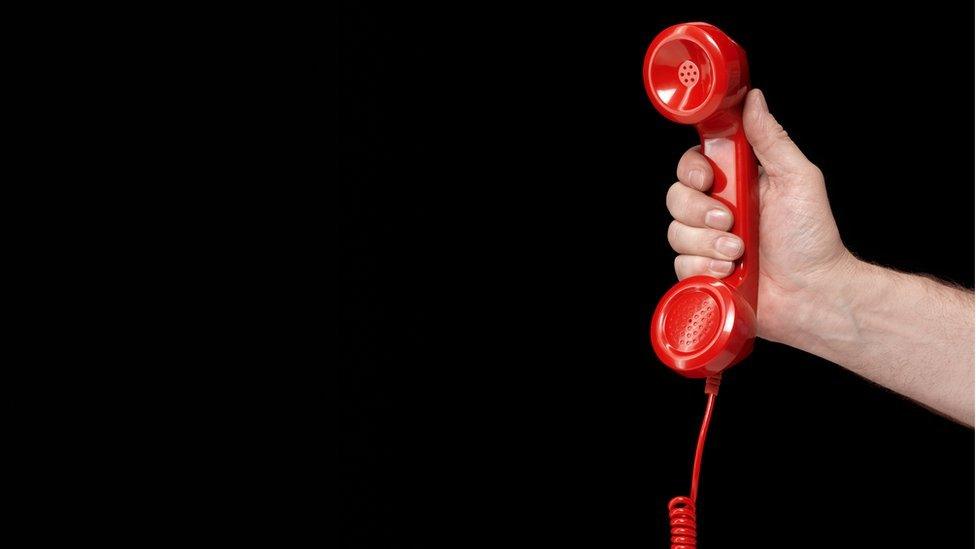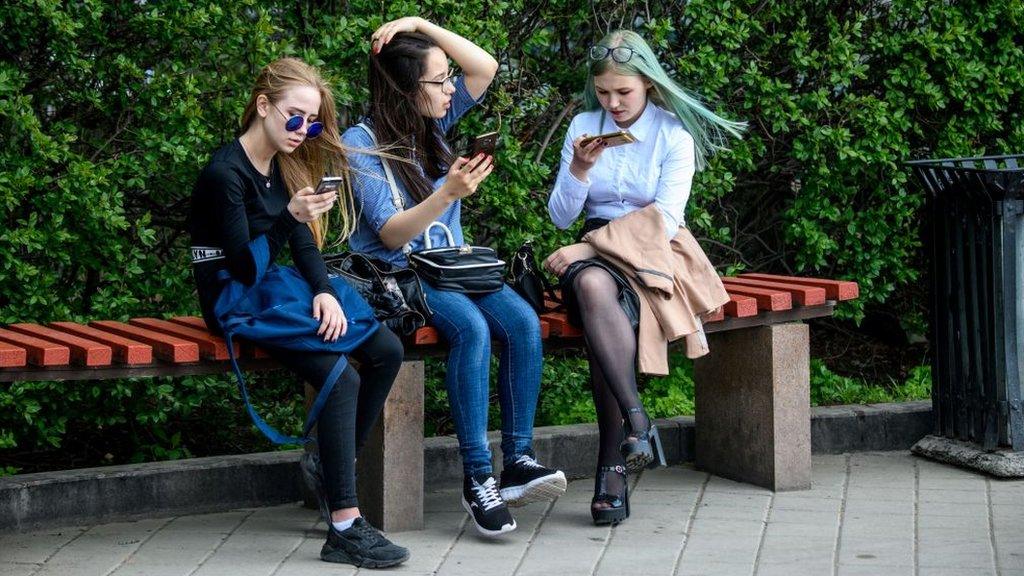Landline digital switch puts rural areas 'at risk', say campaigners
- Published

BT plans for all landlines to be broadband-based by 2025
Plans for a digital switchover which will render traditional landlines redundant will leave rural communities at risk, according to campaigners.
Despite a delay, BT is planning to replace analogue phone lines with broadband based ones by 2025.
In Shropshire, where signal can be "patchy", campaigners say older and more vulnerable people who rely on their landlines will be "cut off".
BT said the move to digital was a necessary upgrade and more efficient.
Earlier this year the telecoms giant announced a delay to the rollout, recognising that "we have more work to do on getting better back-up solutions in place for when things disrupt the service".
'An absolute'
Councillor Heather Kidd, from Shropshire Council, is calling for the rollout to be held until there is a "solid plan" that can work for everyone.
She said it could leave people unable to call for help in the event of an emergency.
"Nobody has really come up with a way of making sure there's good mobile phone signal, but that still doesn't address those people that are not digitally enabled, who really can't use smartphones that the world thinks we can all depend on," she said.
"The landline for those people is an absolute."
Under the new scheme, rather than being plugged into a phone socket, handsets will be connected to broadband routers.

Peter Phillips lives near the Stiperstones - a very rural area in the Shropshire Hills
BT said it would help prevent scam calls and would improve service, but critics have raised concerns about people without broadband connections who cannot depend on mobile phone signal as a back-up in the event of a power-cut.
Peter Phillips, who lives near the Stiperstones, in the area around the Long Mynd, said the only way to get mobile signal at his home was "if you go out the garden, up the hill and do some gymnastics".
"It's the only thing I have," he said of his landline. "There's no other way of contact."

Follow BBC West Midlands on Facebook, external, Twitter, external and Instagram, external. Send your story ideas to: newsonline.westmidlands@bbc.co.uk, external
- Published16 August 2021

- Published22 April 2021

- Published5 January 2019
